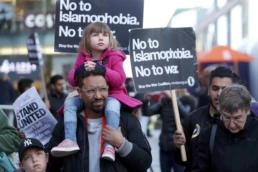Given that I advocate a) that believers ought to concentrate on rectifying their own regional affairs rather than assuming that they can somehow save the world to the detriment of their own situation, and b) that we need to re-evaluate the notion of all Muslims everywhere being of equal priority, why am I now commenting on Afghanistan and the Taliban?
Simply put, the last time the Taliban were in power many young people here were left without shar’i-educated and informed voices to offer them substance and clear guidance in how to view things and what to do. What became deeply unfortunate was that this lack of cultivation allowed for the “war on terror” to cause a generation of radicalisation or misplaced priorities in the name of religion. Most became reactionary and were easily provoked along the way to do things that were counter-productive. Of course, the nefarious actions of the US and its allies required staunch opposition, but underlying confusion towards the Taliban’s claims of implementing God’s law and our relation to it, misrepresentations by lay imams, and juvenile characterisations of the Taliban built on their visual representations (beards and turbans) had people misconstrue them as prophetic companions!
Well this time around things are very different. Newer generations have much more nuanced thinking. Personally, I now have the moral obligation to do something about it, and having observed the last two decades, I have no desire to go down that path again, nor allow for a future in which my kids have to deal with the same (understandable) shortcomings. Hindsight is great wisdom and we should’ve learned a lot by now: what to do and what not to do. Many Muslims often assume doing the same thing repeatedly will somehow bring about different results – the essence of stupidity – but intelligent people know better.
- The shari’ah
- The Caliphate
- The ummah
- Opposition to foreign policy
These issues have persistently caused confusion for western Muslims, who, driven by riled up emotions come out with all sorts of things, unworkable or absurd. Nearly everything you hear on these issues are uninformed by the actual Law and scripture, and vastly informed by populism, post-colonialism and grievance politics. In the west, political and social strategies lead to behaviour that’s either pointless or ineffective, and frustrations from the resulting failures further entrenches Muslims in their unproductive methods. I think it’d be interesting to see what happens this time around if we press the restart button.
We’re certainly in a different place now, and today’s generations are different (not so sure about the Taliban though!). Times have completely changed and much of this is down to social media. Whilst Muslim millennials are far more cosmopolitan, better politically informed, more socially attuned and carry less immigrant anxieties, many ideas are still inherited because thinking on these issues hasn’t been reformed – and with negative consequences.




